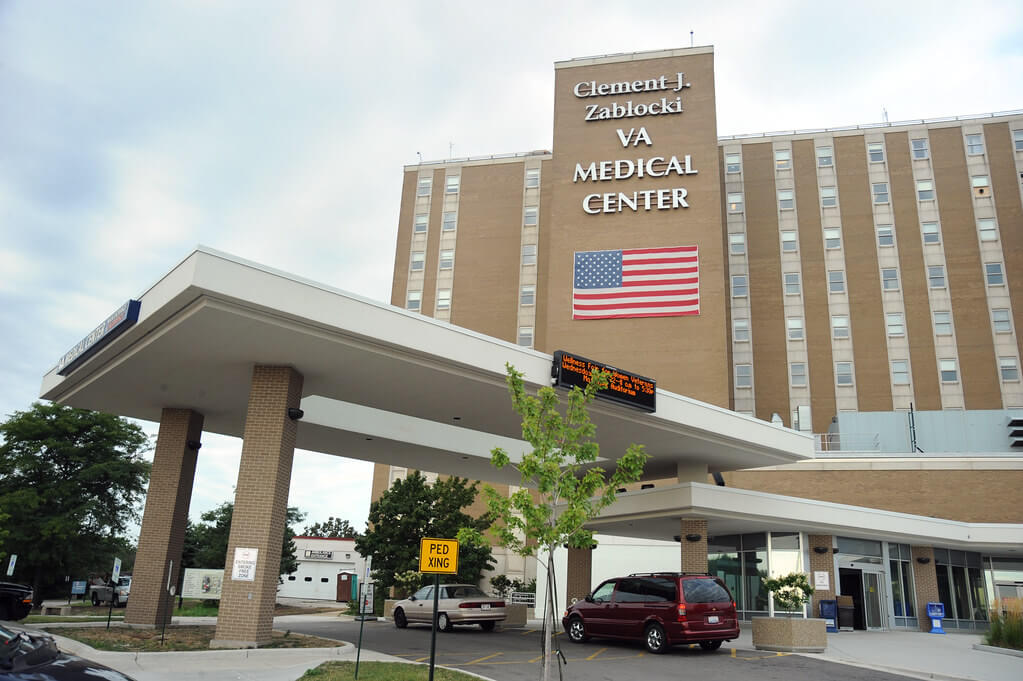New Law Will Provide Care For Veterans Exposed To Burn Pits, Other Toxins
Milwaukee area service providers, including VA, working to scale up to meet demand.
After federal lawmakers recently approved new benefits for veterans exposed to harmful chemicals, Wisconsin service providers are working to ramp up and meet the coming needs.
Veterans may now enroll in benefits under the PACT Act, which President Joe Biden signed into law Aug. 10 after Republican attempts in Congress to block it. Benefits processing is planned to start in January of next year.
More information about benefits eligibility and how to apply is available online through the U.S. Department of Veterans Affairs.
On Wisconsin Public Radio’s “The Morning Show” this week, two Wisconsin veterans officials discussed the new benefits as well as other challenges facing the state’s more than 331,000 veterans.
30K to 75K Wisconsin veterans eligible for new benefits
James McLain, acting director for the Milwaukee VA Medical Center, estimated the PACT Act will cover 30,000 to 75,000 veterans in the state. He said the benefits can make a “huge difference” in a veteran’s life.
“When we look at all of the potential impacts from the toxic exposures, this will position individuals for early diagnosis as well as all the appropriate care for those individuals,” he said.
But help may be on the way. McLain said new clinics are opening after Milwaukee VA officials signed a lease for a space in Oconomowoc and are working to add another community-based outpatient clinic near Milwaukee.
“It’s going to expand our capacity to serve veterans,” McLain said. “It’s also going to put primary care, mental (health care) and some additional services closer to where the veterans live.”
Next month, the VA plans to start screening patients for environmental exposures during service in the armed forces, including the Gulf War and wars in Iraq and Afghanistan. McLain said this screening will happen periodically as part of a veteran’s regular annual screening.
Homelessness, mental health, overdoses among greatest challenges facing Wisconsin veterans
Quentin Hatfield, director of the Wisconsin Veterans Network, said on “The Morning Show” that housing is one of the biggest problems veterans face in Wisconsin. He said this year through August, the network accounted for 68 veterans or veteran families experiencing homelessness or needing intervention to prevent it.
Hatfield said veterans experiencing homelessness are up against rising housing costs and problems related to jobs, food insecurity and transportation. Hatfield said the network tries to zero in on what is predominantly causing homelessness in each individual case.
In La Crosse, Hatfield said the network recently worked with one veteran family experiencing homelessness. The family had been living on savings after a job loss months ago. He said officials have assisted the family with living in a hotel and are searching for a permanent housing solution.
But this case is an example of an “everyday occurrence,” Hatfield said.
McLain called suicide among veterans a public health crisis. He said many organizations are working together on prevention and recently convened at a mental health summit in Fond du Lac.
Hatfield, who advises the state’s Council on Homelessness, said homelessness is a big driver in suicidal ideation. Guns are another common factor. McLain said firearms are often used by male veterans. He said he works with groups on gun locks and gun safety. In more severe cases, he said groups work with law enforcement to remove guns “until the veteran is in a better place.”
McLain said loved ones asking about suicidal ideations can be a crucial first step in getting help. He called it a misconception that asking pushes the person closer to suicide.
Veterans in crisis or those concerned for them can call 988 and press 1 or text 838255 to be connected to the Veteran Crisis Line, which is available 24/7.
McLain said the opioid crisis went far beyond the VA. He said medical officials were following guidance in the healthcare industry at the time — guidance for prescribing the painkillers that authorities later deemed to be harmful.
Today, McLain said there is recognition that opioids need to be for a specific reason and for a specific period of time — and should be used as sparingly as possible.
“We certainly have increased guidelines and a significant amount of monitoring regarding prescribing practices,” he said. “The first choice is to use a non-opioid.”
Listen to the WPR report here.
Wisconsin providers of veterans services brace for expanding care to treat burn pit, toxic chemicals exposure was originally published by Wisconsin Public Radio.























I’ve read this article twice, still have no idea what “the benefits” are.
the headline states the new law will “provide care”, so why would anyone be required to “apply for benefits” ??
Jeremy, this is one of the most useless things you’ve allowed to be published on your site. Can you form any additional partnerships besides WPR that would improve the value of being a paying member of UM?
@wardt01 – Benefits from the VA come in a number of forms, including disability compensation.
The PACT Act funds care through the VA for an expanded category of issues. Veterans will need to apply to receive it.
https://www.va.gov/resources/the-pact-act-and-your-va-benefits/
https://www.va.gov/service-member-benefits/